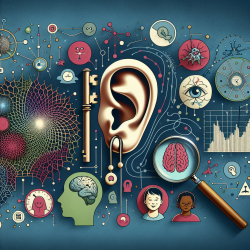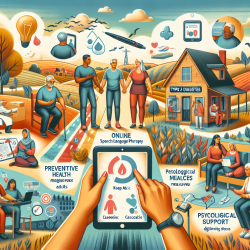Introduction
In the realm of sports, girls often face unique challenges that impact their motivation to participate. The research article "Understanding Girls' Motivation to Participate in Sport: The Effects of Social Identity and Physical Self-Concept" provides valuable insights into these challenges. This blog aims to help practitioners enhance their skills by implementing the research findings to improve outcomes for girls in sports.
The Importance of Social Identity and Physical Self-Concept
According to the study, social identity and physical self-concept play crucial roles in determining girls' motivation to participate in sports. Social identity refers to the sense of belonging and emotional attachment an individual feels towards their sports team. Physical self-concept, on the other hand, is how individuals perceive their physical abilities and body image.
The research found that a strong social identity with a sports team positively influences girls' physical self-concept, which in turn enhances their autonomous motivation to participate in sports. Autonomous motivation is characterized by engaging in sports because it is enjoyable and part of one's identity, as opposed to controlled motivation, which is driven by external pressures.
Implications for Practitioners
For practitioners working with girls in sports, fostering a strong social identity within teams can be a powerful strategy. Here are some actionable steps practitioners can take:
- Encourage Team Bonding: Organize activities that promote team cohesion and a sense of belonging. This could include team-building exercises, social events, or collaborative goal-setting sessions.
- Promote Positive Role Models: Highlight female athletes and coaches who embody both athleticism and femininity. This can help girls reconcile societal expectations with their athletic identities.
- Focus on Skill Development: Help girls improve their physical self-concept by providing opportunities for skill development and celebrating progress, no matter how small.
Encouraging Further Research
While the study provides valuable insights, it also highlights areas where further research is needed. Practitioners are encouraged to explore the following questions:
- How can we effectively reduce controlled motivation among girls in sports?
- What are the long-term effects of enhanced social identity on girls' sports participation?
- How do mixed-gender teams impact girls' social identity and physical self-concept?
Conclusion
Understanding the factors that motivate girls to participate in sports is crucial for creating inclusive and supportive sports environments. By focusing on social identity and physical self-concept, practitioners can help girls develop a positive relationship with sports, leading to increased participation and enjoyment.
To read the original research paper, please follow this link: Understanding Girls' Motivation to Participate in Sport: The Effects of Social Identity and Physical Self-Concept.










